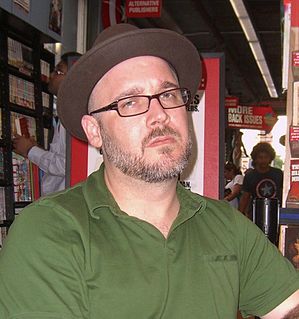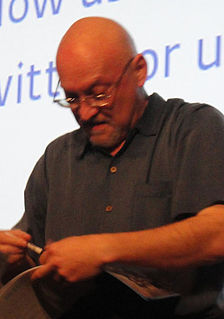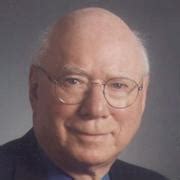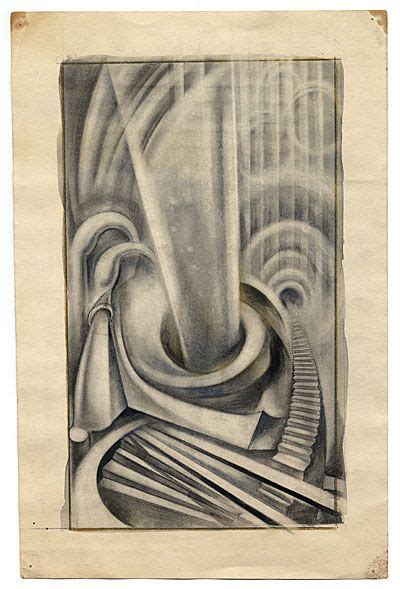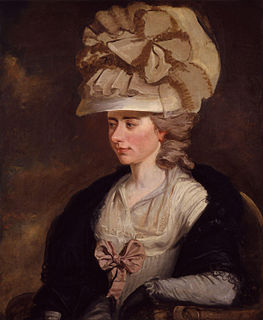A Quote by Chris Ware
I lose faith every time I have to start a new page, and this is no joke. I've occasionally been criticized over the past couple of years for publicly "complaining" about how difficult drawing comics is, yet I've only mentioned it so that the younger cartoonists who are trying it out and finding it difficult and painful realize that they're not alone. There's not really any set way of learning how to do this, and it's always a struggle to improve, and, more importantly, see accurately whether or not one's work is communicating any shred of feeling or truth at all.
Quote Topics
About
Accurately
Alone
Always
Any
Been
Cartoonists
Comics
Communicating
Complaining
Couple
Criticized
Difficult
Drawing
Every
Every Time
Faith
Feeling
Finding
How
Importantly
Improve
Joke
Learning
Lose
Mentioned
More
New
Not Alone
Occasionally
Only
Out
Over
Over The Past
Page
Painful
Past
Publicly
Realize
Really
See
Set
Shred
Start
Struggle
Time
Truth
Trying
Way
Whether
Work
Years
Younger
Related Quotes
With comics, you can only really learn what you're doing wrong or what works best when you see your work published. I've been publishing comics since my 20s, and still, when I flip through any of my new comics, I still only see the things that I wish I'd done better. But that's how you learn, by seeing it.
When I look around and see how aged cartoonists continue to work on their manga and how movie directors create new movies all the time, I understand that they would never retire. And by the same token, I guess I will still be making games somehow. The only question is whether the younger people will be willing to work with me at that far point in the future.
It's important to teach students about the reality of the system, that it is in fact the case that they are being targeted unfairly, that the rules have been set up in a way that authorize unfair treatment of them, and how difficult it is to challenge these laws in the courts. We need to teach them how our politics have changed in recent years, how there has been, in fact, a backlash. But we need to couple that information with stories of how people in the past have challenged these kinds of injustices, and the role that youth have played historically in those struggles.
I'm still learning. It's all a learning curve. Every time you sit down, with any given episode of any given show, it is a learning curve. You're learning something new about how to tell a story. But then, I've felt that way about everything I've ever done - television, features or whatever. Directing or writing, it always feels like the first day of school to me.
A lot of my stories about the old days, they're delicious and funny. But every time I recall the early days, it's painful. With every anecdote, it's painful because you're summoning up the terribly, terribly difficult life of my parents. And it's painful because I didn't realize at the time how hard it was for them.
It's very difficult to measure the impact on policy of any investigative journalism. You hope it matters to let a little more truth loose in the world, but you can't always be sure it does. You do it because there's a story to be told. I can tell you that the job of trying to tell the truth about people whose job it is to hide the truth is about as complicated and difficult as trying to hide it in the first place.
When I was doing Shakespeare and I had spent a lot of time and effort in trying to become a great Shakespearean actress. That was how I started my career, was in the theater doing Shakespeare. And my ambition was to be a great classical actress. That was what I wanted more than anything. So, I really pursued that in the first four years of my career. And it was an uphill struggle. It really was. Shakespeare's difficult and Shakespeare in a big theater is even more difficult. So, anyway, it was a struggle for me.
There is one sure way to identify your greatest potential for strength: Step back and watch yourself for a while. Try an activity and see how quickly you pick it up, how quickly you skip steps in the learning and add twists and kinks you haven't been taught yet. See whether you become absorbed in the activity to such an extent that you lose track of time. If none of these has happened after a couple of months, try another activity and watch-and another. Over time your dominant talents will reveal themselves, and you can start to refine them into a powerful strength.
All that you need in the way of technique for drawing is bound up in the technique of seeing - that is, of understanding, which after all is mainly dependent on feeling. If you attempt to see in the way prescribed by any mechanical system of drawing, old or new, you will lose the understanding of the fundamental impulse. Your drawing becomes a meaningless diagram and the time so spent is wasted.
I never feel there's anything I can't do with comics. There are certain things in comics that you can't do in any other medium: for instance, in Mister Wonderful, Marshall's narration overlaps the events as they're going on. That would be difficult in film; you could blot speech out with a voiceover, but it wouldn't have the same effect. That's always of interest, to see what new things you can do in comics form.
A comic is a way of literally experiencing someone else's vision with a purity that I don't think any other medium offers; there are no technical, electronic or financial limitations; one only has to work harder to improve. Lately I think a new attitude has prevailed that comics aren't inherently an Art form, but that some cartoonists are genuinely artists.

